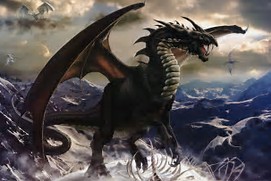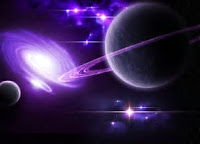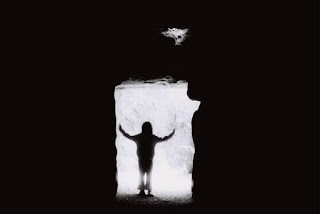Who is the Dragon?
Who is the Dragon?
"The brave men did not slay the dragons, the brave men rode them."
This is one of my favorite quotes.
It is simple and most people don't give it a second thought. A wonderful empowering picture of riding a dragon in one's imagination....fun right? The words however imply immediate contrast between all of the interpretive qualities of fierceness, courage and challenge. It speaks to the greatest triumph of bravely facing our most critical fears, embracing them and letting them participate as a part of you. It connects that which controls our inner selves, and turns the world into harmony and balance. And - yet there are alternate wordings producing harsh pictures. Similar quotes that glorify a viscous and cruel ending where the dragons are slain and we are teased into believing in our own power.
"The brave men who slayed the dragons were loved by all"
Shockingly, this second quote is popular and well distributed, repeated with admiration and is somehow seen to be the perfect solution on how to handle the feared, feathery, green scaled dragons in our world. It is crushing to think that half our society believe intimately in the death of that which has power over us as a meaningful solution; that slaying and removing a harmful and potentially fatal existence and/or experience is somehow going to fix us globally. And, some of those people, sadly believe that the death of that which challenge us will allow us to live happily ever after.
But, before you can decide for yourself, who really is the dragon?
The dragon is everything that is unknown. It is the world, it is our highest existence. It represents the purpose behind living. The dragon is our minds creation toward meaning.
Okay, what a crazy topic right? Lets take a step back, and while reading, think of your deepest awareness of humanity, outside the physical if you will. The legendary dragon is a universal creature. It is mystical, mysterious and it's eyes we find mesmerizing. Visual representation of what a dragon's eye looks like is quite fantastical. Our own historical literary depiction of looking into a dragons yellow and black slit-eye, makes us cringe with the thoughts of power, unknown intentions, our enemies and evil. The contrived being, in its embodied physical form is foreign and is not understood by evolutionary awareness and knowledge. With the exception of a couple Disney stories, it is often visualized with an encompassing intent to destroy all that it encounters. It is a giant, with powers we imagine to be greater than us. It can fly, soaring above the clouds, seeing all that we cannot see. It can breathe fire and melt all objects causing chaos and dissolving all that we work for. Dragons are revered as the ultimate hoarders, collecting and keeping our treasures and perhaps knowing more about what we think we treasure. They are aware of our disposable nature and short list of deeply respected characters. Without a doubt, these qualities scare us. Other cultures imagine the powerful dragon to be quite linguistic, having taught humans to talk. The creatures themselves are known to be capable of speech but rarely communicate through vocalization. Being that they are much more intelligent than humans, their choice to converse with us is minimal and done only as required, a quality we acknowledge and quietly respect, but cannot easily follow through with ourselves. Talking, to some, is a subtle weakness. Throughout history, all cultures have imagined that the magical blood of the dragon is capable of both poison and cure, which implies the power of giving and taking of life, the ultimate mystical power. In some parts of history, dragons were imagined to grow multiple heads signifying a wondrous collection of multiple intelligences in one body, another intriguing unachieved quality to which humans aspire. The dragon has serpentine, reptilian and avian traits while uniquely six-limbed, indicating its ability to exist and flourish in all parts of the world. This is another characteristic that reflects our weakness but respect to evolving toward longevity. The dragon is legendary and mythological, associated with wisdom—often said to be highest being of intelligence. How amazing are these qualities? And, similarly, how amazing it is that we fear it? Given our human capacity to contemplate, it is interesting that we have chosen to create such a creature as an outlet for fear and hate and fantasize about its demise. It is interesting. Think about that. Our created enemies are indeed our most vulnerable challenges and these challenges are intriguingly, that which is more powerful than us. So, naturally, we must mindfully pretend and put an end to that power, right?
On a grander scale (no pun intended), the human contrived quotes we most like to repeat are literary keys to our identity and wellbeing and in doing so, reveal dragons to be that which we observe as our weakness. Our dreams and aspirations verses our lack of comparative power. These are indeed our impurities, our demons, our limitations, our illnesses and our interpreted lack of purpose. With only a glimpse of respect, the dragon is a manifestation of our awareness, our challenges, our life hurdles and our darkness. It is grander than the everyday superficial, and throughout all history, we have chosen to teach that slaying the dragons makes us most powerful. We teach that it is best to eliminates the things that most challenge us. Slaying the dragons, make us feel in control, like we can win in a battle against the most mysterious things. And, when conquering our scary human imperfections....we have a chance to win.
But consider yourself, ourselves, in our deepest humanity. As all creatures do, we have found slaying our enemies to be a necessity for survival Following this, we slay our enemies for the evolution toward survival of shared priorities and benefits, and finally, we slay as the method of ensuring the least number of life challenges and therefore leading the most productive lives. In our studies of human history, there are few truer statements. The death of life's difficult challenges means a better life for all. The imaginative dragon however represents a different enemy. And, if you break it down, the dragon is simply an exaggeration of our contemplative mind. The dragon is our desired power and perceived freedom. The dragon is our desired higher self. And it scares us.
Continue if you will, to consider that which happens when we slay THE dragons in society, or better yet, when you've slayed YOUR personal dragons in life. Consider what happens when society continues to seek the dragons, and kill them one by one. It got us as humans where we are, but the dragons are returning. Consider if you can what these killings have done to our humanity.
Human evolutionary instinct says "kill the dragon, slay the dragon and win". Human evolution however has blessed some of us with reflection. The ability to see what works, what doesn't, and weigh the consequences of our actions. Reflection as such however, shows that the death of a dragon is not really possible in the ways our human minds think. Killing the dragon achieves temporary relief, success and room to breathe if for only a short while. It surely has the ability to extend life in a minimal way. Recognize if you can, what truly happens afterward. The reality is, that the dragon is all mighty, it can't really die. It sheds blood, it ceases fire, it will lie still, and when you aren't looking, it will hide away in the mountains, the seas and the skies and from there, the dragons energy is revived and reborn. The dragons will collectively then creep and produce powerful offspring. They will continue to hatch, grow a little smarter with each successive existence and like a cancer, will find the cracks in humanity to prey upon once again.
And so, as we contemplate "the" dragon and as you contemplate "your" dragon there are secrets you should know. There are secrets that evolving human awareness is revealing that can be of great benefit to our enjoyment in life. Are you ready? The dragon is not the enemy. The mythical creature that humans created in our minds in which to focus our fears and slay them, is no longer accurate. Think about those magical creatures as the most hidden and most amazing tool of all time. Think of the dragon as a window to opportunity. Think about the dragon as a collection of qualities to absorb, consolidate, understand and align. Think about what happens if instead of slaying your dragon, you tame it and let it live with you, amongst us and we use it to strengthen our awareness. Perceive if you can, our human growth in learning all we can about how the dragon thinks, behaviorally, spiritually and with a persistence unlike all other. Imagine now using the dragon to understand our collective strengths and weaknesses, our loves and distains, health and illness and our global growth of humanity by simply acknowledging and respecting those imagined, impossible powers. Imagine a mind set where the dragons, while not our friends, and not quite our allies, are however capable of respectful connections where trees are again planted over scorched lands and instead of slaying those dragons, we learn to ride them. Ride, soar and admire them for what we are not yet. Ride with their consent. Perhaps dragons are not to be feared, not really conquered, but to be respected as the meaning they seem to be intended.
Learn to ride the dragon, and the opportunity will be as vast as the powers that ignites its flame.
CNK
“Never laugh at live dragons.”
― J.R.R. Tolkien



